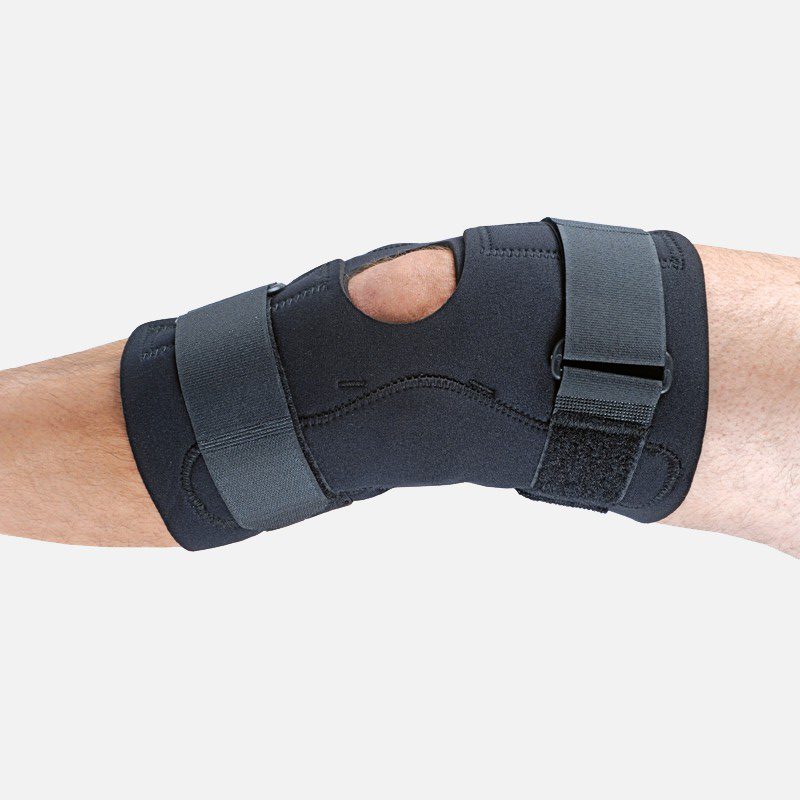In December 2017 researchers from The Netherlands and the UK assessed the effect of a soft knee brace on pain, level of activity, knee instability, and self-reported knee confidence in … Read more
A soft knee brace significantly improves knee instability in individuals with knee osteoarthritis
In June 2018 researchers from The Netherlands published the results of their study to assess the effect of a soft knee brace on knee instability in 38 individuals with knee … Read more
Circadian rhythm
Circadian disruption has been classified as probably carcinogenic to humans by the World Health Organization’s International Agency for Research on Cancer. So what is it?
The circadian clock is the … Read more
Physical activity following treatment for breast cancer may improve health-related quality of life, emotional wellbeing, anxiety and cardiorespiratory fitness
In January 2018 researchers from the UK published their review of the scientific literature to assess the effect of physical activity in women with breast cancer who have undergone treatment. … Read more
Individuals who exercise more following the diagnosis of non-metastatic prostate cancer have a lower risk of dying from prostate cancer
In December 2017 researchers from the USA assessed the effect of physical activity on risk of dying from prostate cancer in individuals diagnosed with prostate cancer. 7,328 men who had … Read more
Researchers call for research into the safety of manufactured citric acid, a common additive in foods and beverages
In August 2018 researchers from the USA published four case reports of individuals who repeatedly suffered from different inflammatory reactions following the consumption of foods, beverages or vitamins which contained … Read more
Tai Chi, Qigong, and Yoga appear to significantly reduce the severity of depression and anxiety
In August 2018 researchers from China and the USA published their review of the scientific literature to assess whether Tai Chi, Qigong or yoga are effective for treating major depressive … Read more
Movement-to-music appears to improve mobility and walking endurance in individuals with multiple sclerosis
In August 2018 researchers from the USA assessed the effect of movement-to-music and adapted yoga on mobility and walking endurance in 81 individuals, aged between 18 and 65 years, with … Read more
Yoga appears to improve quality of life as well as reducing fatigue, sleep disturbances, depression and anxiety in individuals with breast cancer
In January 2017 researchers from Germany and Australia published their review of the scientific literature to assess the effect of yoga on quality of life, mental health and cancer-related symptoms … Read more
Chocolate consumption does not appear to be associated with risk of atrial fibrillation
In January 2018 researchers from Sweden published the results of their study to assess the effect of chocolate consumption on the risk of atrial fibrillation. A total of 40,009 men … Read more
Moderate chocolate consumption may reduce the risk of atrial fibrillation
In August 2017, researchers from the USA, Denmark and Canada published the results of their study to assess the effect of chocolate on atrial fibrillation or flutter. 55 502 individuals … Read more
Chocolate 3-6 servings per week appears to reduce the risk of hospitalisation or dying from heart failure but more than this and the risk increases
In January 2017 researchers from the USA and Sweden published the results of their study to assess the association between chocolate consumption and heart failure. 31,917 men aged 45-79 years, … Read more
Chocolate 45g per week appears to reduce the risk of cardiovascular disease
In June 2018 researchers from China published their review of the scientific literature to assess the effect of chocolate on risk of cardiovascular disease. A total of 23 studies involving … Read more
Chocolate consumption appears to be associated with a reduced risk of heart attack and ischaemic heart disease.
In July 2016 researchers from Sweden published the results of their study to assess the effect of chocolate on risk of ischaemic heart disease. A total of 67 640 individuals … Read more
Moderate chocolate consumption appears to be associated with a reduced risk of coronary heart disease, stroke and diabetes
In July 2017 researchers from China published their review of the scientific literature to assess the effect of chocolate and risk of coronary heart disease, stroke and diabetes. A total … Read more
A higher coffee consumption appears to be associated with a lower risk of atrial fibrillation
In June 2016 researchers from the USA and Denmark published the results of their study to assess the effect of coffee consumption on risk of atrial fibrillation. 57,053 individuals (27,178 … Read more
In children, honey may be better at relieving cough symptoms than diphenhydramine, but there is little difference between honey and dextromethorphan
In April 2018 researchers from Nigeria published their review of the scientific literature to assess the effectiveness of honey for acute cough in children. Results showed that honey reduced cough … Read more
Researchers call for the development of regulations to ensure the safety of herbal teas
In January 2018 researchers from Italy published the results of their analysis of 32 samples of commercially available black and green teas which had been purchased from markets and online-shops … Read more


















